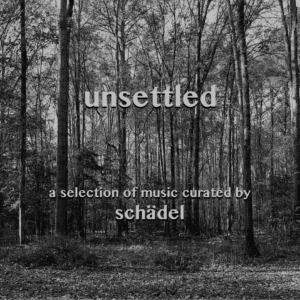Twenty years ago this past weekend, Laibach’s Jesus Christ Superstars was released.
I moved to Cincinnati only about a couple months earlier, on the first of September. I frequented a coffee/used cd shop (where I’d later be asked to work), mostly just reading/listening to music, and drinking Coke with blueberry syrup (I was inexplicably into blueberry flavored food), as I hadn’t yet gotten into coffee. I had no job or job prospects, and was still getting over a particularly tough breakup. Later (much, much later), I would have identified myself as depressed, but at the time, I was just, like… really bummed.
Music, as has always been the case, was my savior, and I spent money I wasn’t earning on cds, desperately looking for new stuff. A couple years earlier, I’d reversed my opinion of synths, from a “hell no” to a “yes if in industrial music”. Much of what I was doing, then, was digging up relatively obscure industrial/synthcore/etc.
Laibach was not exactly obscure, but at the time, I only had Kapital, their latest, a weird, genre-hopping electronic record, but not the exact brand of industrial that I really got into. (Though I love it now.) However, their new record was supposedly a much more guitar-based sound, which would put it more squarely in my camp. I pre-ordered it (again, with money I wasn’t earning!), and once it arrived, threw it in the discman for the walk over to the coffee shop.
From the first guitar chord, I loved it. The overall sound was similar to the formula Rammstein had found not long before: deep, Teutonic vocals over driving guitar riffs, though this Laibach sound had predominantly electronic drums.
The theme of the album was religion, focusing on Christianity, not surprisingly in a negative light. The opening track, “God Is God“, was a cover of a Juno Reactor song, with the The Ten Commandments samples in the original sung here as lyrics, lending a weird, stream-of-consciousness feel to the vocals. Another cover came next, the titular track from both this album and its musical of origin: “Jesus Christ Superstar“. I was never much of a fan of musicals, so this would always be mostly a novelty tune, for me.
The first original on the album was really where the record began to shine, with a bit more complexity coming in.
“Kingdom of God” wasn’t just Rammstein-style riffing; this was a choir/orchestra, film-score atmosphere, with the guitar coming in only on the chorus. “Abuse and Confession” reveled in the indignance of Judas, asking of Jesus, “But were You not tempted, my Lord / When You became flesh? Did Your desire not rise / At the sound of a woman’s breath?”
While not bad, the next couple tunes didn’t stand out on the album, so not until “The Cross“, the third cover on the album, did we get another truly heavyweight song. I’ve found Prince’s original to be a frankly lackluster tune on an album with some otherwise amazing songs; however, Laibach recontextualized it in a way that melded perfectly with the other cynical religious commentaries on the record. I made a joke at one time that Laibach had become the greatest cover band of all time, and the more I revisit their covers (of which there are literally albums worth), the more that joke rings true.
Instead of Prince’s guitar histrionics (which I love), the end of this version brings choir vocals and organ, darkening the hopeful Price tune. (The only real sour note on the record, for me, is at the end here, when the lily is gilded by one last vocal interjection of “The cross!”, casting the tune is just a bit to jokey a light.”) The last two songs on the album round out the ominous feel of the album, with only minimal guitar, but heavy synth and atmospherics. The album may have been better suited to save “The Cross” until the final spot, but at this point in post-album music culture, that stuff doesn’t matter.
At a time when I had under 500 albums in my collection, this one was a powerhouse, and it’s one I’ve always been sure to push on folks who express any interest in guitar industrial. It would be a bit of revisionist history to say this helped me along my path to skepticism, but there’s a good chance it saved a fair amount of my sanity.








